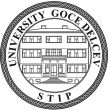Sports Law as an Independent Branch of Law
Abstract
Sports law is one of the newest branches of the legal system. It is determined by the fundamental principles and specific normative solutions belonging to the constitutional, civil, criminal and administrative law. It is indisputable that sports from its creation to this date, was carried out on the basis of certain pre-established rules. These special pre-established rules provide fulfillment of the core values on which the sport is based represented by the fundamental principles that provide the fair play and free competition. In fact, the interaction that occurred from the relationship between sports and law as two separate phenomena that are each individually developed, provided the emergence of the sports law as a separate branch of law. This article aims to highlight the need for legal intervention in sports and sports activities and emphasize that sports law is independent legal discipline.
Downloads
References
Нанев, Л., Атанасовски, И. (2011): Спорт и право – УКИМ, Факултет за физичка култура;
D.Šuput, Sportsko pravo u Sjedinjenim Američkim Državama, u: Uvod u pravo SAD, Beograd, Institut za uporedno pravo, 2008, str. 348;
What is Sports Law, see: http://www2.msstate.edu/~jag/intro.htm last access 06.09.2013;
KRÁLÍK, M. Právní odpovědnost za sportovní úrazy. In Právní Rádce [online]. PravniRadce.cz, 2007 [cit. 2010-03-13] on http://pravniradce.ihned.cz/c4-10078260-20421910-F00000_d-pravniodpovednost-za-sportovni-urazy last access 06.09.2013;
SLUKA, T. Profesionální sportovec (právní a ekonomické aspekty). Praha : Havlíček Brain Team, 2007. p. 18;
HORA, J. K otázce trestní odpovědnosti hráčů při sportovních úrazech. Acta Universitatis Carolinae Gymnica. 1979, roč. 15, č. 1, p. 18, 20-21.
D. Šuput, Dokumenti međunarodnih organizacija koji propisuju zabranu upotrebe dopinga u sportu, u: Strani pravni život br. 2/2009, Institut za uporedno pravo, Beograd, 2009, p. 292;
Constitution of Republic of Macedonia (Official Gazette No.52/91);
Amendment XVII (Official Gazette No.91/01);
Law of Sports (Official Gazette of RM No.29/02);
Law on Associations and Foundations (Official Gazette of RM No.52/10);
International Convention against Doping in Sport 2005, Paris, 19 October 2005;
Paul Marriott-Lloyd, International Convention against Doping in Sport, UNESCO, 2006;
Michael Straubel (2006): The International Convention Against Doping in Sport: Is It the Missing Link to USADA Being a State Actor and WADC Coverage of U.S. Pro Athletes? Marquette Sports Law Review, Fall, Volume 19, Article 5;
Norwegian Confederation of Sports, Finnish Central Sports Federation (1985): Nordic Anti-doping Convention, Norwegian Confederation of Sports;
For a clean and healthy sport The Anti-Doping Convention, Sport Conventions Division / Directorate of Youth and SportCouncil of Europe F – 67075 Strasbourg Cedex;
ANTI-DOPING CONVENTION, European Treaty Series - No. 135, Strasbourg, 16.XI.1989;
International Convention Against Doping In Sport, Miscellaneous No.3 (2006), Paris, 19 October 2005;
Action Plan to Combat Drugs (2000-2004) available on http://europa.eu/legislation_summaries/justice_freedom_security/combating_drugs/l33092_en.htm last access 08.06.2013;
The European Sports Charter (adopted by the Committee of Ministers on 24 September 1992);
RECOMMENDATION No. R (86) 18 OF THE COMMITTEE OF MINISTERS TO MEMBER STATES ON THE EUROPEAN CHARTER ON SPORT FOR ALL: DISABLED PERSONS (Adopted by the Committee of Ministers on 4 December 1986 at the 402nd meeting of the Ministers' Deputies), Committee of Ministers, under the terms of Article 15.b of the Statute of the Council of Europe;
Declaration on the specific characteristics of sport and its social function in Europe, of which account should be taken in implementing common policies, The European Council, 13948/00;
Laure, P. (2006) “Drug abuse, doping behaviour”. In Sarikaya, H., Peters, C., Schulz, T., Schönfelder, M. and Michna, H. (eds.), Biomedical Side Effects of Doping: Harmonising the Knowledge, International Symposium, Munich, 21 October 2006;
Conclusions Of The First European Union Conference On Sport:
United Nations Educational, Scientific and Cultural Organization, http://portal.unesco.org/education/en/ev.php-URL_ID=2221&URL_DO=DO_TOPIC&URL_SECTION=201.html last access 30.10.2013;
Court of Justice of the European Communities (ECJ) in Bosman v. Union Royale Belge Sociétés de Football Association, (case C-415/93 [1995] ECR I-4921, hereinafter Bosman case).
Borja García (2007): "From regulation to governance and representation: agenda-setting and the EU’s involvement in sport", Entertainment and Sports Law Journal;
Richard Parrish (2003): Sports law and policy in the European Union, Manchester University Press;
A.N.Chaker, Study on national sports legislation in Europe, Council of Europe Publishing, Strasbourg, 1999, p. 13.
Linda Jean Carpenter (2008): Legal Concepts in Sport: A Primer , Third Edition, Published by Saga more Publishing in cooperation with the American Association for Physical Activity and Recreation;
Timothy Davis (2001): What Is Sports Law?11 Marq. Sports Law Review 211;
Barbara Bogusz, Adam Jan Cygan, Erika M. Szyszczak (2007): The Regulation of Sport in the European Union, Edward Elgar Publishing, Jan 1, p.38;
Robert C.R. Siekmann, Janwillem Soek: Lex Sportiva: What is Sports Law? Springer, Jan 19, 2012 - Biography & Autobiography, p.10;
Permissions
Authors are expected to obtain permission from copyright holders for reproducing any illustrations, tables, figures or lengthy quotations previously published elsewhere. BSSR will not be held accountable for any copyright infringement caused by the authors.
Copyright
The content offered in the BSSR remains the intellectual property of the authors and their publishers respectively. University “Goce Delcev”- Shtip, R. Macedonia and BSSR keap the right to promote and re-publish the texts.



